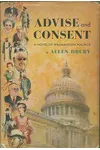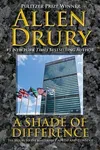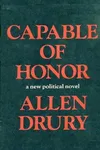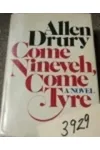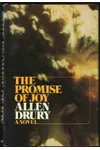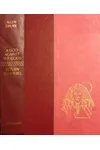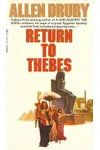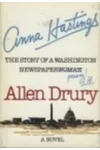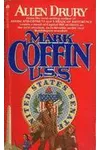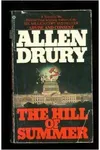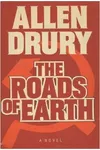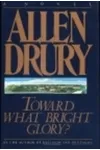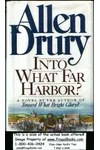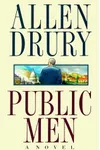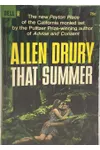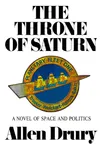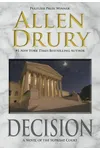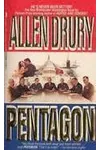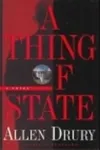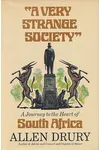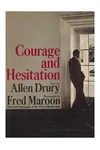Picture a storyteller who turned the smoky rooms of Washington, D.C., into gripping tales of power and intrigue—meet Allen Drury! Born in 1918, this Pulitzer Prize-winning American novelist redefined political fiction with his blockbuster Advise and Consent. A journalist-turned-author, Drury’s knack for blending real-world politics with human drama made him a literary star whose stories still captivate readers today.
The Making of Allen Drury
Allen Stuart Drury was born on September 2, 1918, in Houston, Texas, to Alden and Flora Drury. Raised in California, he graduated from Stanford University in 1939, where he honed his writing chops as a newspaper editor. After a brief stint in the Army, a back injury led him to journalism. By 1943, Drury was covering the U.S. Senate for United Press International, soaking up the political maneuvering that would fuel his novels. His Senate Journal (1943–45), published later, offered a front-row seat to the era’s political giants like Franklin D. Roosevelt and Harry S. Truman.
Allen Drury’s Unforgettable Stories
Drury’s debut, Advise and Consent (1959), is a masterclass in political fiction. This 616-page epic follows a contentious Senate confirmation battle for a Secretary of State nominee with a controversial past. It spent 102 weeks on The New York Times Best Seller list and snagged the 1960 Pulitzer Prize for Fiction. Its sequels, like A Shade of Difference (1962), tackle racial tensions, while Capable of Honor (1966) and Preserve and Protect (1968) dive into presidential elections. Drury’s style—grand yet grounded—mixes lyrical Washington descriptions with sharp dialogue, reflecting his conservative lens and anti-communist views. He also ventured into science fiction with The Throne of Saturn (1971), a political take on a Mars mission, and journalism drama in Anna Hastings (1977).
His characters, like the idealistic Senator Brigham Anderson or scheming Seab Cooley, feel human yet larger-than-life, embodying the clash of duty and ambition. Drury’s novels aren’t just stories—they’re a window into the moral dilemmas of power, drawn from his two decades as a Capitol Hill insider.
Why Allen Drury Matters
Drury’s impact lies in his ability to make politics thrilling. Advise and Consent inspired a 1962 film with Henry Fonda and a Broadway play, cementing its cultural footprint. His conservative perspective, wary of Soviet influence, resonated during the Cold War, yet his nuanced characters appealed across political lines. Decades later, critics like Scott Simon hailed his work as “the definitive Washington tale.” Drury’s novels, reissued by WordFire Press in 2014, remain a touchstone for understanding governance and human nature, influencing modern political dramas like House of Cards.
- Born: September 2, 1918, Houston, Texas
- Key Works: Advise and Consent, A Shade of Difference, The Throne of Saturn
- Awards: Pulitzer Prize for Fiction (1960)
- Died: September 2, 1998
Snag Advise and Consent and dive into Allen Drury’s thrilling world of political intrigue!
